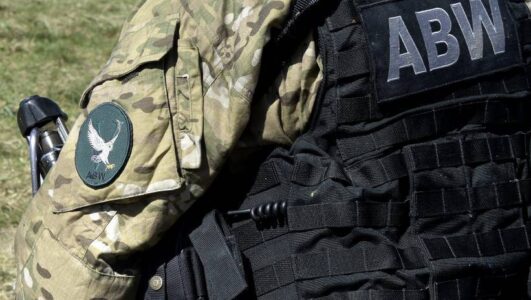
Two Iraqi nationals arrested in Poland over suspicions of financing Islamic State terrorist group
The men were detained on Tuesday. The ABW officers managed to secure their telephones, data storage devices and notes.
Both men have been put under three-month arrest whilst the investigation into the matter is being carried out by the Lower Silesian branch of the state prosecutor’s office.
Detainees may face up to 12 years behind bars for procurement of funds for an international terrorist organisation.
The investigators have not revealed the size of funding organised by the suspected men nor how and where the money collection took place.
ISIS has been famous for using a shadow network of cash transfers known as the hawala. This system proved especially useful, if not indispensable, at transferring money between places where the banking system has crumbled or the costs of its services are too high.
The hawala system relies on fixers who set a password, take the money from the sender and provide him or her with the contact information of another broker in the city where the money is sent to. The recipient at that city will be able to retrieve the money after he or she gave the right password to the particular hawala broker. This way funds travel across borders undetected with border guards and customs officers untriggered by the tiniest snippet of suspicion.
Having generated a remarkable financial cushion during the high days of its fanaticism-infused sociopolitical plan to build the Caliphate governed by the strictest application of the Islamic law known as Sharia, ISIS started investing its funds in legitimate businesses such as real estate and automobile dealerships.
“What we know is that they accumulated large amounts of cash and other assets,” said Howard Shatz, a senior economist at the Rand Corporation and co-author of several studies on the Islamic State’s finances, cited by the Atlantic. “We don’t know where it all went,” he added.
Source: Poland IN





